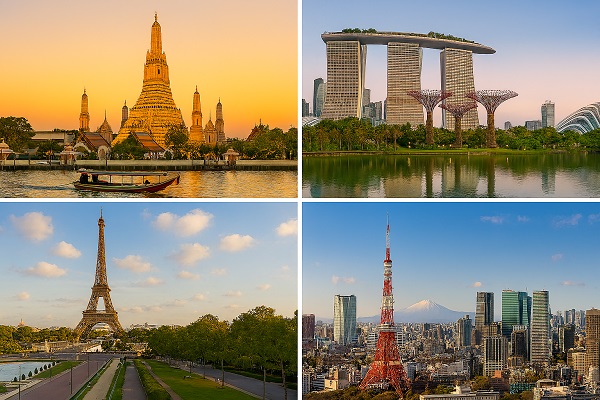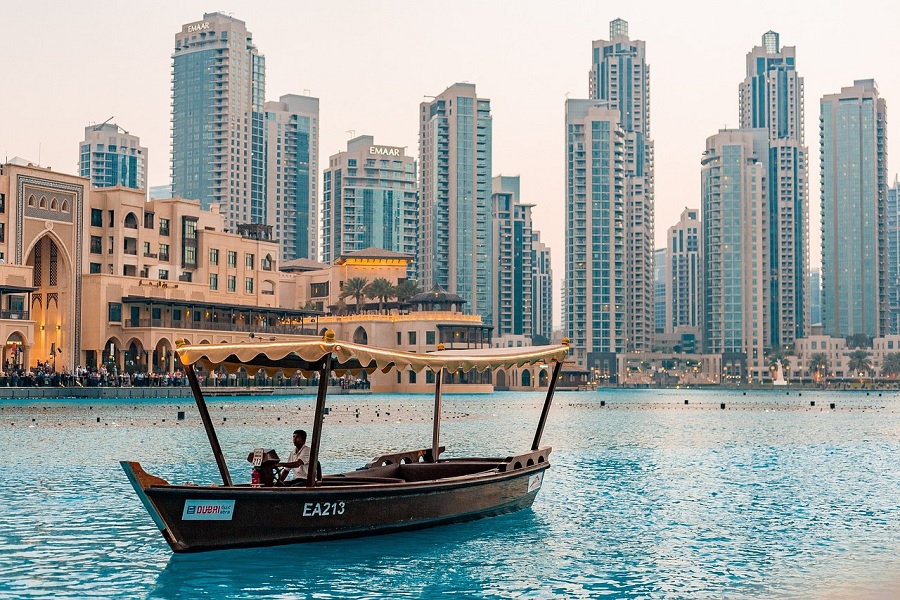The Evolution of International Travel: Trends and Insights

International travel has evolved significantly over the years. What once required arduous preparations, including long waits for visas and unpredictable transportation, has now become more accessible, efficient, and diverse. With advancements in technology, changing global dynamics, and the rise of new travel trends, exploring the world has never been easier or more exciting. This article takes a closer look at the evolution of international travel, current trends, and how travelers are reshaping the way they experience the globe.
The Transformation of Travel: From Backpacking to Luxury
Travel has transformed from the days of traditional, backpacking journeys to a more diverse range of experiences, catering to all kinds of travelers—whether they seek luxury, adventure, or culture. In the past, international travel was often seen as a luxury that only a few could afford. However, today, budget airlines, low-cost accommodations, and digital booking platforms have democratized the travel experience, making it available to a broader audience.
1. Rise of Budget Airlines and Affordable Travel
Budget airlines have revolutionized the travel industry. Inexpensive flights have made international destinations more accessible than ever before, giving travelers more options to explore different countries without breaking the bank. Companies like Ryanair, EasyJet, and AirAsia have led the way in offering low-cost airfares, with additional options for premium services if desired.
2. Digital Transformation in Travel Planning
The way we plan and book our travels has changed dramatically. The advent of online booking platforms, travel apps, and social media has shifted the process from traditional travel agents to self-booking tools. Platforms like Booking.com, Airbnb, and Skyscanner offer travelers flexibility and a wider range of accommodation and transportation options. Moreover, apps like Google Maps, Tripadvisor, and Yelp have made it easier for travelers to navigate, find top-rated restaurants, and discover hidden gems.
3. Advent of Sustainable and Responsible Travel
With rising awareness about climate change and the environmental impact of tourism, travelers are increasingly seeking sustainable and eco-friendly options. Many tourists now prioritize destinations that promote responsible tourism, support local communities, and maintain environmental standards. The popularity of eco-tourism has grown, with hotels adopting green initiatives, and destinations emphasizing conservation efforts.
From selecting eco-friendly hotels to supporting locally-run businesses, responsible tourism is now a significant aspect of international travel. Governments and international organizations have also stepped in to enforce sustainable practices and preserve the natural beauty and culture of tourist destinations.
4. The Experience Economy: Personalized Travel
In today’s travel landscape, there’s a clear shift from material goods to experiences. Travelers are increasingly opting for authentic and unique experiences over traditional sightseeing tours. This trend is often referred to as the "Experience Economy," where travelers are more focused on creating lifelong memories rather than checking off a list of famous landmarks.
Whether it’s participating in a local cooking class, exploring remote villages, engaging in adventure sports, or immersing oneself in the local culture through festivals and events, travelers now seek meaningful interactions that go beyond the typical tourist trail. Customized, personalized travel packages, often provided by tour companies and digital platforms, help cater to these desires for unique and off-the-beaten-path experiences.
5. Technology Integration in Travel
The role of technology in international travel cannot be overstated. From booking flights to enhancing the travel experience on the ground, technology is driving the industry forward. Innovations such as contactless check-ins, digital passes, and biometric security screening have streamlined the airport experience, making it more efficient and user-friendly.
Additionally, augmented reality (AR) and virtual reality (VR) are beginning to play a role in the travel industry. VR allows travelers to preview destinations before booking, while AR apps help visitors navigate unfamiliar cities. The rise of travel influencers on platforms like Instagram and YouTube also shapes how people perceive and choose their destinations, relying on shared experiences rather than traditional travel guides.
6. Work and Travel: The Rise of Digital Nomads
In recent years, the rise of remote work has significantly impacted the travel landscape. Digital nomads—professionals who can work from anywhere with an internet connection—are increasingly choosing international destinations as their home base for extended periods. Many countries have embraced this trend, offering special visa programs for remote workers, allowing them to live and work abroad legally for months or even years.
This new style of work and travel allows individuals to experience life in a foreign country without sacrificing their careers. Cities like Bali, Lisbon, and Mexico City have become popular hotspots for digital nomads, offering not just great weather and affordable living but also a vibrant co-working community.
The Changing Face of International Travel
The global travel industry is continuously adapting to meet the needs of modern-day travelers. As people become more conscious of their impact on the environment and society, the demand for eco-friendly, responsible, and culturally respectful travel options will only continue to rise. With technological advancements simplifying the travel process and providing richer, more immersive experiences, it’s clear that the future of international travel will be more dynamic than ever.
The Future of Travel: A More Inclusive and Accessible World
As international travel continues to evolve, one of the key trends is inclusivity. More travelers now seek to visit destinations that provide accessibility for people with disabilities, as well as those that accommodate diverse interests and needs. This inclusivity ranges from offering wheelchair access to providing options for LGBTQ+ travelers and ensuring cultural sensitivity in tourist offerings.
Moreover, post-pandemic travel will likely see more health and safety protocols in place. While the world navigates the challenges of a post-COVID era, the importance of health precautions and flexible travel policies will continue to shape how people travel internationally.
Conclusion
International travel has come a long way, from being a rare luxury to an accessible and diverse activity. With the rise of budget airlines, technology, and sustainable tourism practices, the world is more connected than ever. As travel trends evolve, the future promises even more personalized, immersive, and responsible travel experiences. For those eager to explore beyond borders, the opportunities are endless, making international travel an exciting and enriching part of modern life
























